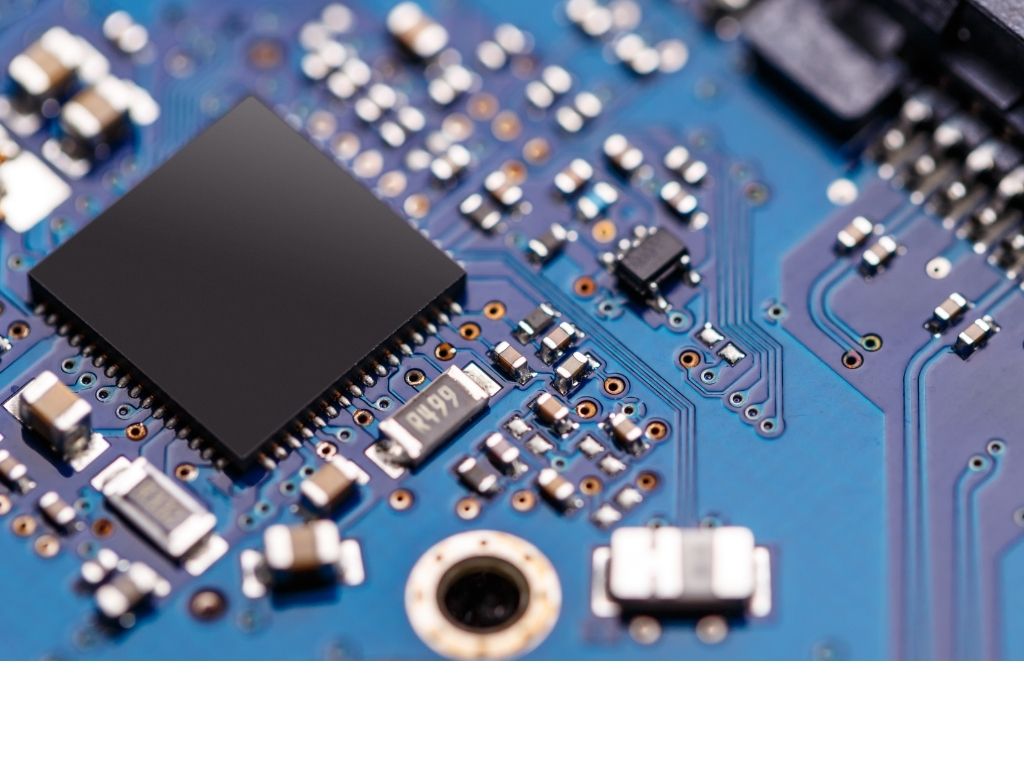“Supply chain resilience” and “national security priorities” were the buzzwords during a three-hour panel discussion on semiconductor manufacturing and supply chain risks, hosted by the Department of Commerce on Thursday.
Senior-level managers across the global semiconductor supply chain all used their time to tout the importance of the globally-aligned chips industry, all while trying to make a case for more government spending on the sector in order to better compete against Asian companies.
For example, Taiwan covers about 60% of the world’s chip output. With an increasingly belligerent China breathing down its neck, Taiwan as a nearly sole source for semiconductor manufacturing comes with increasing political risk. “We should care about where these things are made,” noted Michael Hogan, a senior vice president with Global Foundries, a chips manufacturer in upstate New York, and one of a handful of foundries that call the U.S. home.
The U.S. share of global semiconductor chip manufacturing is around 12%. Other nations, namely in Asia, are putting up big investment capital as a matter of industrial strategy.
Tom Quillin, senior director for security and trust policy for Intel, which also has a few chips foundries (known in industry parlance as a fab) in the U.S., said the company was “falling behind.” He said that all of the semiconductors that are smaller than 10 nanometers are being made in Asia.
Whenever policy came up among the guests, the CHIPS Act was the big standout. https://www.congress.gov/bill/116th-congress/senate-bill/3933/text
The $22.8 billion aid bill was proposed last year but has gone nowhere since the country was mired in a pandemic and an election year. The proposal includes federal funding for the construction of new domestic foundries and research and development support. Everyone agreed that action was needed immediately as it takes years to build foundries and buy, and make, the machines needed to produce chips here in the U.S.
Industry leaders from major computer brands said that “significant government investment” was needed to help build new fabs, saying building new ones was a “national priority”.
One concern during the call was the continued reliance on working with allies. Taiwan is an ally. South Korea is an ally. The Semiconductor Industry Association’s director of industry statistics and economic policy told people on the call that “no one single country can do this alone. I would require a trillion-dollar investment and increase chip prices by a third,” estimated Falan Young.
Sectors like solar said that the chips industry supply chain, from polysilicon on up to the wafers used in making solar cells for solar panels, was overly dependent on China. Supply chains didn’t have to come home fully, but incentives, grants, and any support that made the business profitable here would facilitate reshoring.
CPA’s chief economist, Jeff Ferry, was one of the panelists.
He called for a public-private partnership to build, own and operate fabs within the U.S.
“This project could start with GlobalFoundries. The other partners in such a venture should be the major U.S. fabless chip companies. This would give the fabless chip companies interest in steering their manufacturing work to the new consortium,” Ferry said.
For the U.S. to have a more resilient supply chain in this space, and build up its domestic manufacturing, these four things need to happen, Ferry said:
- The government needs to set a target objective, which should be 50% production capacity by market segment. Don’t just dispense money to chipmakers and hope they do the right thing. There has to be a clear objective in mind.
- Extend the investment capital to make its target achievable. A $100 billion CHIPS Act would be better than where it is now.
- New business needs customers. The customers for U.S. fabs are the U.S. fabless chipmakers. There must be incentives to get these customers to favor domestic manufacturers of semiconductors.
- U.S. fabs need protection from the predatory practices of foreign suppliers, in particular China.
“We should not be supporting China’s efforts to overtake us,” Ferry said. “We should enforce existing export control laws more firmly, in particular on the semiconductor equipment manufacturers and the electronic design software firms to stop them exporting vital chipmaking tools to China.”
Less than two days after writing his speech for the Department of Commerce panel, the Department banned chips sales to more Chinese entities on Thursday.
The DoC’s Bureau of Industry and Security added seven Chinese supercomputing entities to the Entity List. They said that the companies were “involved with building supercomputers used by China’s military” To build those products, China imported advanced chips designed in the U.S.
Commerce Secretary Gina Raimondo said that “the Department of Commerce will use the full extent of its authorities to prevent China from leveraging U.S. technologies to support these destabilizing military modernization efforts.”
Worth noting, the Washington Post reported on Wednesday that China supercomputers were “designing hypersonic missiles” that could one day be aimed at Taiwan. Those computers are powered by tiny chips designed by a Chinese firm called Phytium Technology using American software and built in the world’s most advanced chip factory in Taiwan, which relies on American-made chip making equipment.
Taiwan’s semiconductor industry is increasingly dependent on strategic sectors of the Chinese economy, like 5G giant Huawei. While Taiwan is indeed an American ally, relying on Taiwan as a key part of the American supply chain for semiconductors is no longer sustainable and carries with it both political risk, and national security risks that are rarely considered.












